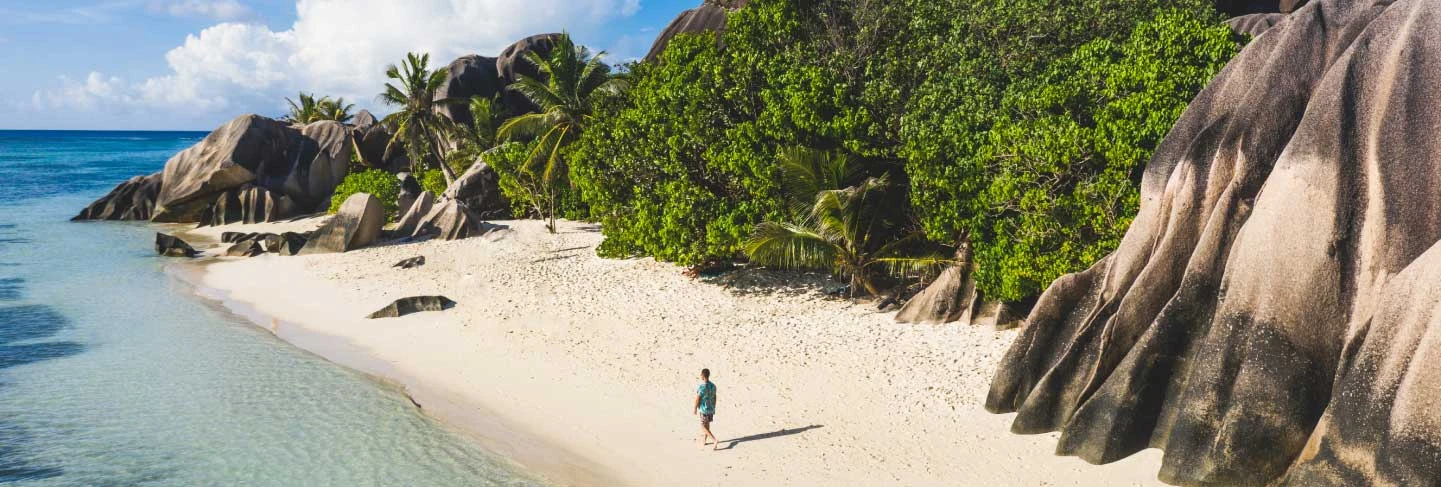
Why volunteer in Africa? You’ll learn a lot about water conservation
Tasneem Johnson-Dollie
Posted: February 25, 2020
Water shortages due to global warming has the world buzzing with talk about water conservation. Africa offers opportunities to learn about water conservation firsthand. This is just one of the answers to the question: “Why volunteer in Africa?”
In the African context, the importance and benefits of water conservation become very clear. Many African countries have had to adapt to water scarcity at some point, and those with the most experience have overcome challenges in surprising ways.
With climate change continuing to hike up temperatures globally, we could all benefit from boosting our water conservation know-how.
Should we worry about water?
Water is a basic need, essential to all life on Earth.
To describe water supply in an area, the United Nations (UN) uses the terms water stress and water scarcity.
Water stress refers to an annual water supply that has dropped below 1,700 cubic metres per person, while water scarcity is when annual water supply falls below 1,000 cubic metres per person.
Water scarcity is one of the leading causes of poverty worldwide. Today, around four billion people – nearly two thirds of the world’s population – experience water scarcity for at least one month of the year, and many of these people live in Africa.
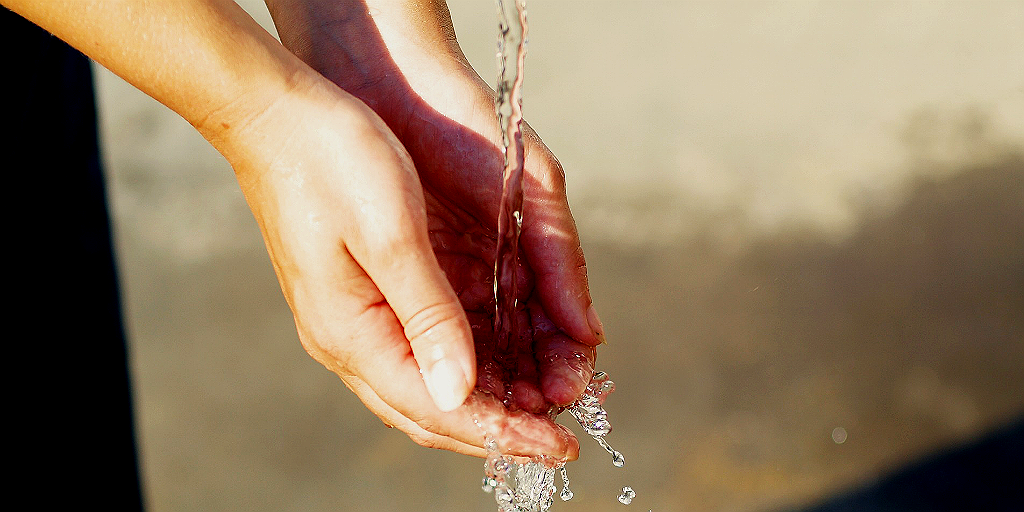
Original photo: “Hand Water” by Tibor Janosi Mozes is licensed under CC BY-SA 2.0.
The environmental causes of water shortage
Environmental aspects – like climate and weather conditions – change the amount of water we have access to. Rain brings more water, while drought or intense heat reduces the water supply.
The UN claimed that, “No continent will be struck as severely by the impacts of climate change as Africa.”
There are many reasons for this, but climate change is where it all begins.
Climate change has increased the number of floods and droughts in Africa. This has left the continent with an unpredictable water supply.
While for most of us it’s clear how water supply is an environmental concern – because hotter days means less water – not many people know that social, political and economic factors can make an even bigger difference.
Why water supply has an economic impact
How we find and use water has a huge impact on every other aspect of our lives.
For example, we cannot improve hygiene standards – conditions or practices that maintain health and prevent disease – without access to clean, safe water. So a water shortage could lead to a deterioration in the health of whole communities.
Similarly, if we have less access to clean water, it becomes harder for us to stay hydrated. Since our bodies need water to function properly, not being able to stay hydrated affects our health, and this affects our ability to study, work or find employment (among other things).
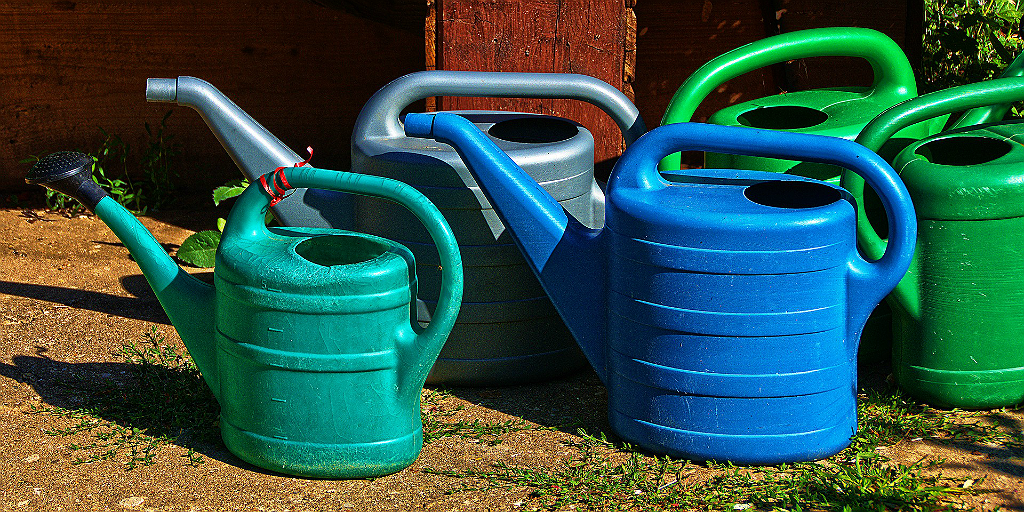
Original photo: “Watering cans” by Wolfgang Eckert is licensed under CC BY-SA 2.0.
Because of this, countries and regions with less access to clean water are less productive and their economies take a knock.
Having a reliable supply of water is so important to a country’s economy that global organisations are trying to find novel ways to emphasise this fact.
The World Health Organisation (WHO) has done the math and shown that for every $1 invested in water and sanitation, there is an economic return of between $3 and $34.
Their hope is that the world can start working towards public health goals, encouraged by the economic success they can bring.
How this feeds into politics and social concerns
The economy of any country has an effect on how well it can be governed. In every country, water is a commodity – something of value that can be bought and sold – and so it feeds into the economy.
When the economy is good, a country has lots of money, and lots of money means it can buy lots of stuff. This could include resources – think more schools, more garbage trucks and more job creation.
But more money could also mean bigger salaries, houses and cars for government officials.
And since it’s the politicians who set up the country’s shopping list, the type and quality of resources we get depends on the type of leadership in place.
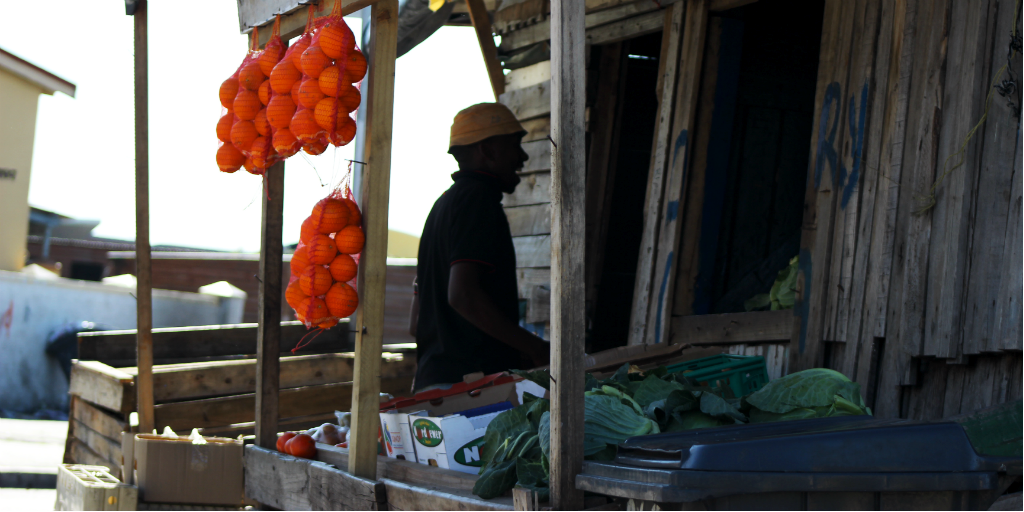
So politics also affects our water supply. And when poor governance by politicians sees people getting less water than they need to stay clean and healthy, we start to see social issues arising.
For example, when people are made to live in unhygienic environments because they aren’t supplied with enough water to keep their environment or themselves clean, they may become ill and stay ill, and this affects their ability to work and earn a living.
So water supply affects the economy, politics and social aspects of all communities.
But it doesn’t end there, because economic, political, and social aspects feed back into the system, and have an impact on the environment. Think of how too few garbage trucks means that waste builds up, which contributes to environmental pollution. This can then have a positive or negative effect on water supply.
Sub-Saharan Africa is well-versed in this cascade of events that can make or break a region’s water supply.
Sub-Saharan Africa’s history of water scarcity
The geographical position of sub-Saharan Africa means that it is exposed to extreme weather conditions that affect its water supply. And harsh weather conditions are occurring more often due to climate change.
Africa is also experiencing rapid population growth – especially in urban areas. More than half the population growth expected by 2050 will occur in Africa. This means that the already stretched water supply will need to go even further.
And because sub-Saharan Africa is working to overcome challenges in its political, social and economic spheres, we can see how water supply affects the region, and vice versa.
With its specific set of circumstances, sub-Saharan Africa is the region of the world that faces the biggest challenge when it comes to water scarcity. But it’s not their problem to fix.
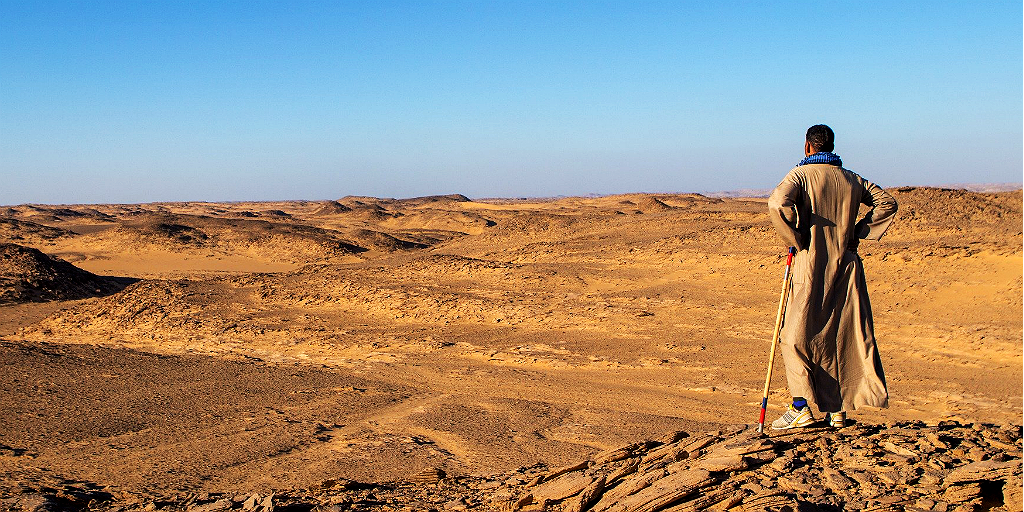
Original photo: “Desert man” by Squirrel_photos is licensed under CC BY-SA 2.0.
Why Africa’s water scarcity is the world’s problem
Sub-Saharan Africa’s water shortage is the world’s problem. How so?
Well, when we learn about other countries, regions, or continents, we’re usually taught about how we differ and what separates us.
But the world is actually one big system. The UN explains the global system by stating that the land, climate, oceans and water are all part of one Earth life-support system in which humans are intimately embedded.
This systems-based view of the world is a basis of the UN Sustainable Development Goals (UN SDGs). The UN SDGs are 17 goals set by the UN in 2015, that provide a 15-year plan for global sustainable development.
By seeing the world as a system, we can start to understand how our actions in one place can bring about either improvements or problems in another place. This reminds us to be careful about what we contribute to.
Africa’s up to the challenge
Challenges this big have tested Africa’s inhabitants to their limits. But many countries have adapted to the water crisis, and are working their way to a more sustainable future.
The recurring drought in South Africa – and particularly in Cape Town, a popular tourist destination – has catapulted water-wise efforts to new heights. Water-wise advice isn’t only woven into municipality messages as a reminder for locals, but tourists are also encouraged to get involved in saving water in the city.
Cape Town has set the standard for sustainable water wise tourism with its creative and innovative ideas that make saving water part and parcel of its biggest tourist pulls. Let’s see how.
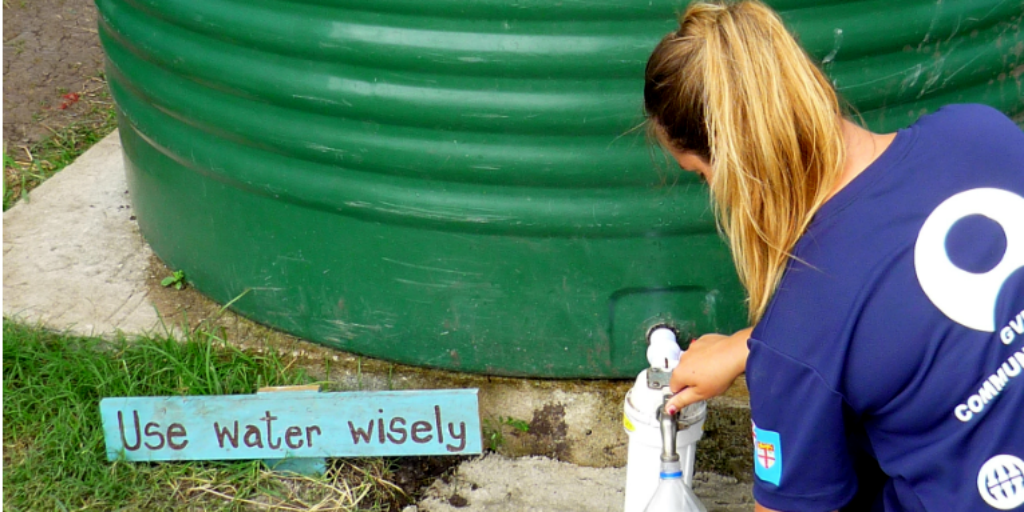
South Africa’s solutions to water shortages
1) Water wise restaurants
Top chefs, like Luke Dale Roberts, have come up with incredible ways to moderate water usage in restaurants.
Harvesting water from air-conditioning units for use in mopping floors, or asking patrons if they would like to use the same cutlery throughout their meal, are water-saving activities becoming commonplace in some eateries.
2) Hotels as perpetual educators
If you’re staying at a hotel in Cape Town, you’d be hard pressed to forget to save water during your stay.
Hotels across the city have been fitted with polite water wise signage reminding visitors of Cape Town’s water concerns, and educating them on the fixtures in the hotel that are aimed at reducing every visitor’s water usage during their stay. This may include low-flow fittings on taps or the absence of bath plugs.
3) Leisure activities that use less water
The amazing leisure activities in Cape Town are often what draws tourists to the city in the first place. So when these facilities advocate for saving water, it sends a strong message to those using them.
Golf courses are finding water-wise alternatives to water their courses, the 2019 Two Oceans Marathon drew its drinking water from an approved natural spring, and lodges all over the Cape are encouraging visitors to wear lightweight clothing, convenient for hand-washing.
These up-and-running improvements in saving water stand head and shoulders above the rest when compared to other cities with similar water concerns.
And there are great volunteer opportunities that can help you contribute to water conservation in Africa, beyond sticking to water-wise advice while touring the Cape.
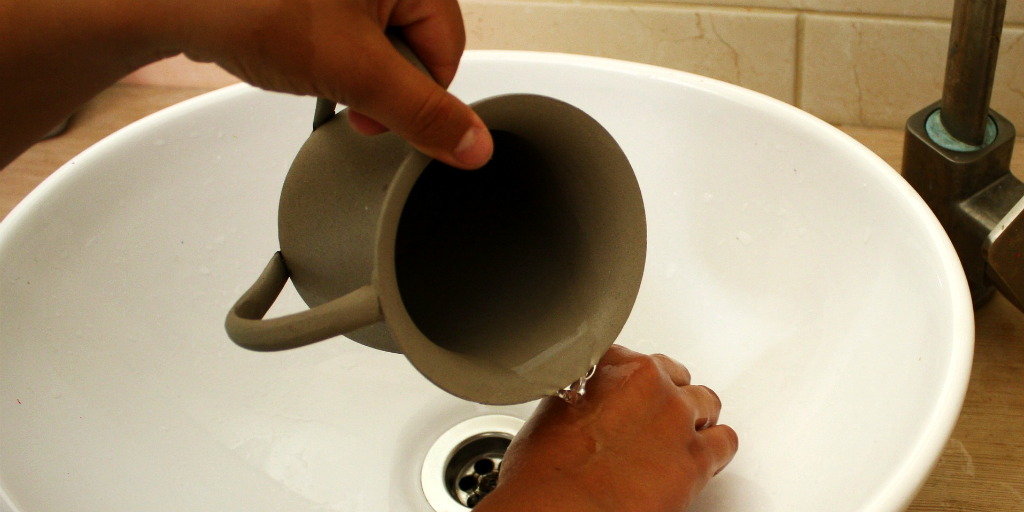
Original photo: “Ritual washing” by Razia Richman is licensed under CC BY-SA 2.0.
Working together for a sustainable water supply
Here are some examples of how you can join GVI in contributing to water conservation in Africa:
1) Island nations climate change and biodiversity volunteer in Seychelles
The effects of climate change can be magnified in small island communities. This is because these islands have limited resources – such as land for farming – and an increase in the number of droughts and floods makes it difficult to manage things like food and water supply.
And, because climate change has caused a steady rise in the sea levels, it could potentially sink small islands. This means that efforts to counter the effects of climate change need to be more urgent on these islands.
On site in Seychelles, volunteers focus on surveying beaches and mangroves to study the effects of climate change on the island of Curieuse.
This data is then used by local authorities and it assists them in making decisions about how best to manage and maintain their water supply, and other resources.
2) Girl empowerment in Zambia
Since water supply depends on much more than just how much it rains and how hot the climate is, addressing social concerns can make a big impact.
In a town near the Victoria Falls in Zambia, volunteers are part of the movement to provide the support needed for local girls to become more empowered.
This empowerment can hold a lot of water since it helps these girls to make decisions that can lead to their own economic success as well as the economic success of Zambia.
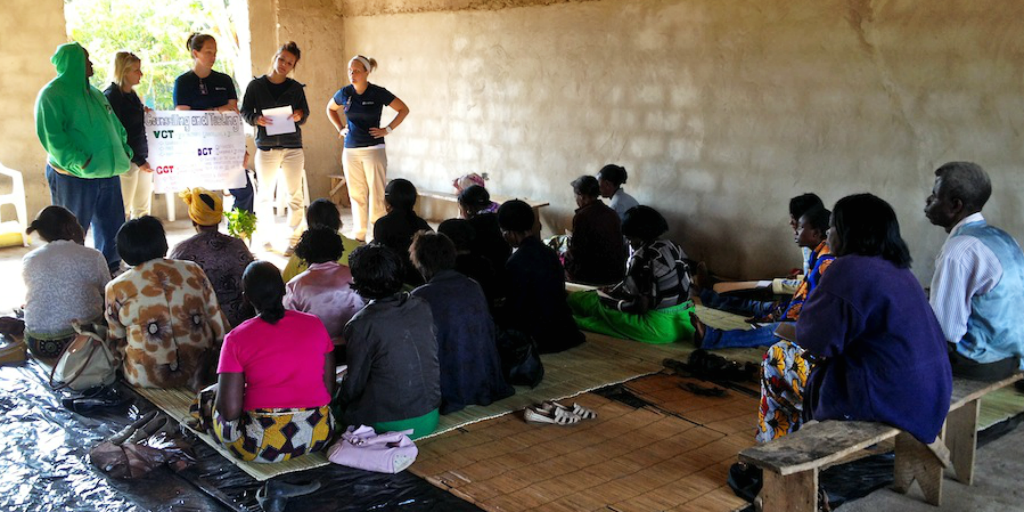
3) Teaching and community development in Zanzibar
Another way to address the negative impacts of society on water supply – such as water pollution that reduces the supply of freshwater – is to create opportunities for communities to improve their education and environments.
In Zanzibar, teaching and community development programs look to assist local partners in improving community education so that communities can better manage themselves and their resources.
Together these programs assist in addressing the social, political, and environmental aspects that have had an impact on the water supply across Zanzibar.
Why volunteer in Africa?
Volunteering in Africa can give you a real sense of what water deprivation looks like on the ground, and how it can be addressed.
In South Africa, most people get the idea that every drop counts, and that saving water is everyone’s responsibility.
And Cape Town is reaping what it’s sown, having cut its water consumption from 1.2 billion litres to 515 million litres in just three years.
Volunteering in Cape Town in particular will put you among some of the most successful water-saving movements in the world, and give you the chance to learn water conservation from the city that does it best.
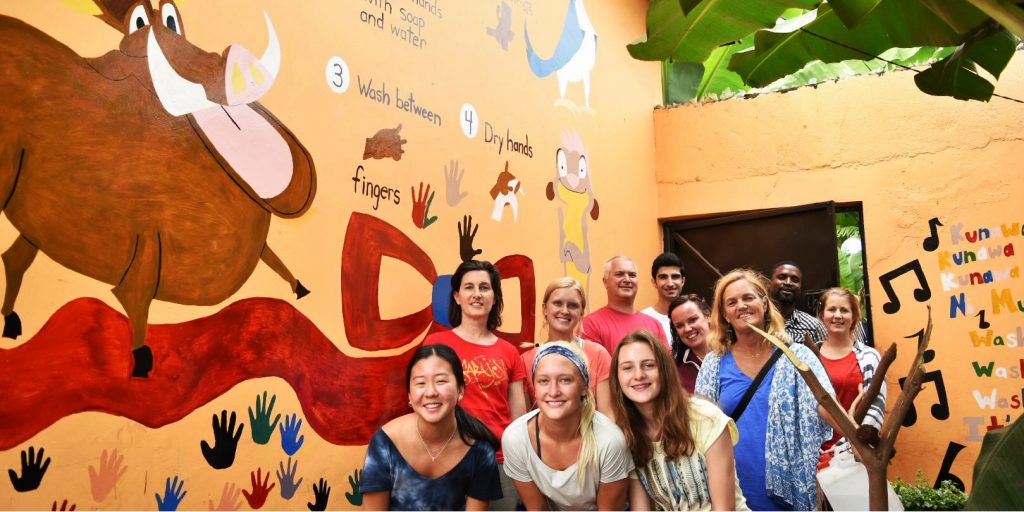
So if you’re rearing to learn water conservation in a real-life setting, find a volunteer program in Africa that can tap into your true potential.
Tasneem Johnson-Dollie is an intern at the GVI Writing Academy. The Writing Academy is a skills-development program that pairs development editors with budding travel writers. Learn more about the program here.
By Tasneem Johnson-Dollie

